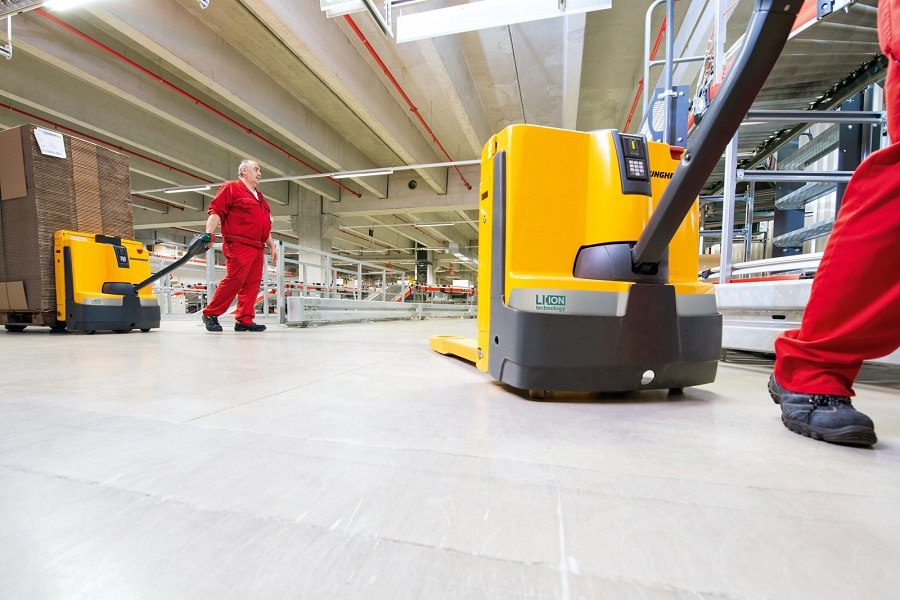Free 5-Year Warranty on Lithium-Ion For Jungheinrich Customers
21st June 2017

Effective immediately, the Jungheinrich Group is providing a free 5-year warranty on all of its self-manufactured lithium-ion batteries. If the capacity of a battery falls below 65 per cent of its nominal capacity within the warranty lifetime, Jungheinrich will repair or exchange it free of charge, using its local after sales team.
In 2011, Jungheinrich became the first manufacturer to launch a series-produced truck equipped with lithium-ion technology. At present, Jungheinrich is the only intralogistics company to develop and manufacture not only vehicles, but also the corresponding charging systems and batteries. Jungheinrich has a manufacturing depth for its energy storage systems, which is unique in the market. Currently, Jungheinrich already offers lithium-ion batteries as a feature on more than 90 per cent of its trucks. In addition, the latest vehicles using conventional lead-acid batteries can easily be converted to lithium-ion technology.
Dr Oliver Lücke, the Jungheinrich Board of Management member in charge of Engineering, comments: “Thanks to our many years of experience in the area of energy storage systems, we are now able to offer our customers a free warranty on our Jungheinrich lithium-ion batteries lasting either for five years or 10,000 hours of operation. Anyone who is interested in energy-efficient, leading-edge warehouse solutions can’t afford to ignore Jungheinrich.
“By granting this additional warranty we are substantially reducing the investment risks for our clients, while maximising their benefits. Our lithium-ion batteries are intelligent and can communicate with both the vehicle and the charging equipment. That means they protect themselves autonomously from incorrect handling, while at the same time adjusting ideally to the application at hand. That is why Jungheinrich batteries are especially efficient, maintenance-free and long-lasting. At Jungheinrich we are convinced that lithium-ion technology will soon become the standard energy storage system in intralogistics.”

